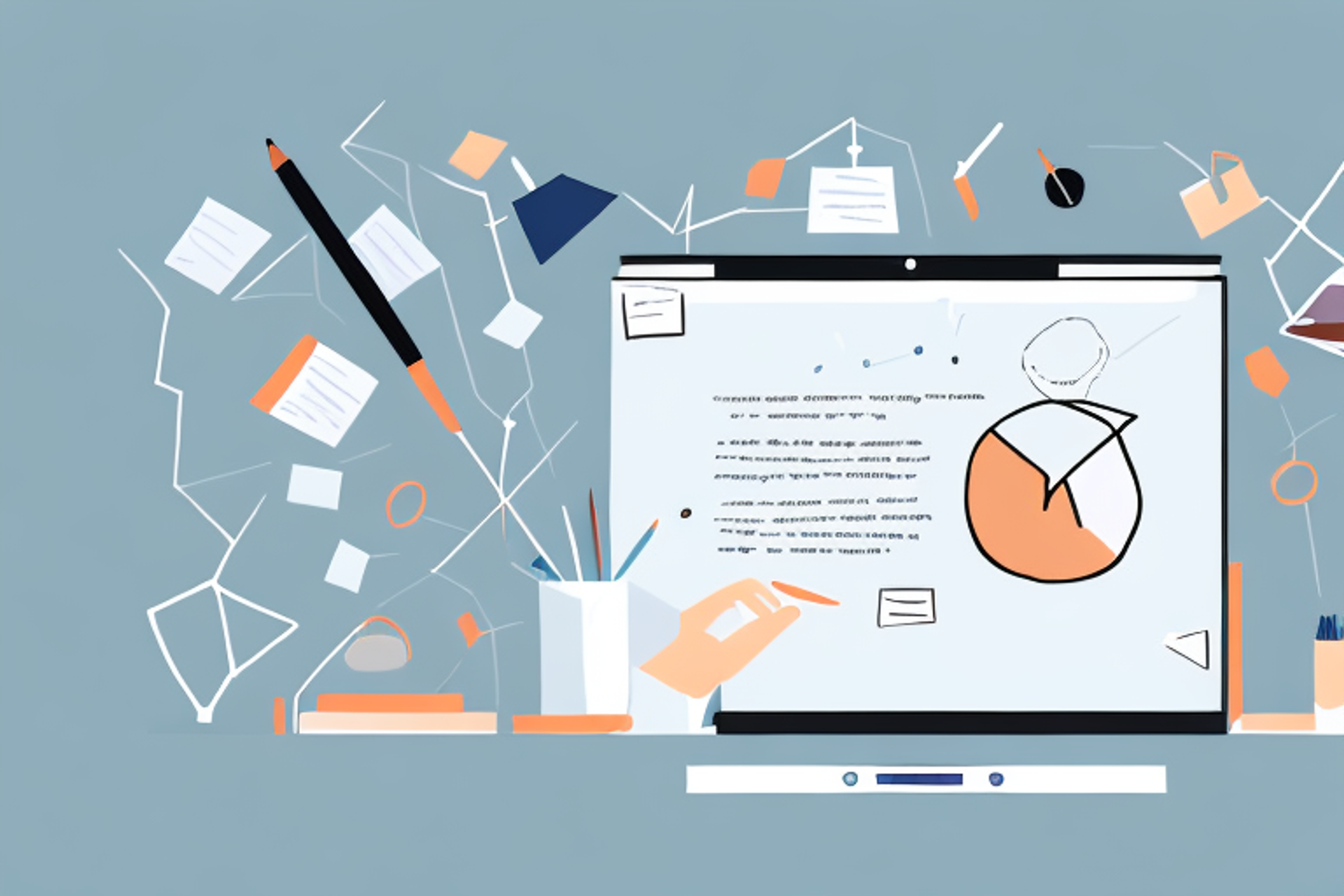How to Prepare for Oracle Product Management Behavioral Interviews
If you're preparing for an Oracle Product Management Behavioral Interview, this article is a must-read.
Posted March 6, 2025

Table of Contents
If you're considering a career in product management at Oracle, you need to be prepared for behavioral interviews. Behavioral interviews are used to assess your skills, experiences, and potential fit with the company culture. In this article, we'll outline exactly what behavioral interviews are, why Oracle uses them, and all the steps you need to take to prepare for your interview.
Understanding Behavioral Interviews
Behavioral interviews are interviews designed to get a better idea of your past behavior in order to predict your future performance. The questions are based on the premise that the best predictor of future behavior is past behavior. The interviewer will ask open-ended questions that begin with phrases like "tell me about a time when..." or "describe a situation in which you...". It's important to be honest and transparent with your answers, as anything you say could lead to follow-up questions. Be prepared with examples that provide specific details and results of your actions.
One way to prepare for a behavioral interview is to review the job description and identify the key skills and competencies required for the position. Then, think of specific examples from your past experiences that demonstrate those skills and competencies. It's also helpful to practice answering behavioral interview questions with a friend or family member, so you can feel more comfortable and confident during the actual interview. Remember, the goal of a behavioral interview is to showcase your abilities and potential for success in the role, so take the time to prepare and present yourself in the best possible light.
Types of Behavioral Interview Questions
There are three types of behavioral interview questions that you can expect to encounter:
- Skill-based questions: These questions are designed to assess specific skills and abilities, such as your problem-solving, decision-making, or leadership skills.
- Experience-based questions: These questions are based on your past experiences, such as your experience working on a team, your experience managing projects, or your experience dealing with challenges or setbacks.
- Culture-based questions: These questions assess whether your values and personality fit with the company culture.
It is important to prepare for each type of behavioral interview question in advance. For skill-based questions, review the job description and identify the key skills required for the role. For experience-based questions, think of specific examples from your past work experience that demonstrate your abilities. For culture-based questions, research the company culture and values to ensure that you can speak to how your own values align with those of the company.
It is also important to remember that behavioral interview questions are designed to elicit specific examples and stories from your past experiences. When answering these questions, be sure to provide specific details and examples to illustrate your skills and abilities. Use the STAR method (Situation, Task, Action, Result) to structure your answers and ensure that you are providing a complete and compelling response.
Why Oracle Product Management Uses Behavioral Interviews
Behavioral interviews are used in Oracle's product management interviews because they provide a better sense of a candidate's abilities, experiences, and potential cultural fit than traditional interviews. They are also fairer and more objective, as the interviewer is looking for specific behaviors rather than making subjective judgments.
One of the key benefits of behavioral interviews is that they allow the interviewer to assess a candidate's problem-solving skills. By asking candidates to describe how they have handled specific situations in the past, interviewers can gain insight into their ability to think critically and creatively. This is particularly important in product management, where the ability to identify and solve complex problems is essential.
Another advantage of behavioral interviews is that they can help to identify candidates who are a good fit for Oracle's culture. By asking questions about how candidates have worked with others in the past, interviewers can get a sense of their communication and collaboration skills. This is important in a company like Oracle, where teamwork and collaboration are highly valued.
Researching the Role and Company
To prepare for your Oracle behavioral interview, you need to be well-informed about the role and the company. Spend time reading the job description, researching the company's products, services, and values, and reviewing the company's website and social media pages. This will help you understand what's important to the company and what they're looking for in a product manager. You may also want to research the industry to get a better understanding of the trends and challenges facing the field.
Additionally, it can be helpful to reach out to current or former employees of the company to gain insight into the company culture and work environment. You can also attend industry events or conferences to network with professionals in the field and learn about the latest developments and innovations. By taking these extra steps to research the role and company, you will be better equipped to showcase your skills and qualifications during the interview process.
Analyzing the Job Description
The job description will provide a lot of clues about what the interviewer will be looking for. Make a list of the key responsibilities and requirements, and then assess your own skills and experiences against them. Be prepared to talk about your experience in relation to the specific responsibilities and requirements mentioned in the job description.
It's important to note that job descriptions can sometimes be vague or incomplete. If you have any questions or uncertainties about the responsibilities or requirements listed, don't hesitate to reach out to the hiring manager or HR representative for clarification. This will not only help you better understand the position, but also show your initiative and attention to detail.
Additionally, keep in mind that job descriptions are not always set in stone. As you progress in the interview process and learn more about the company and its needs, the job description may evolve or change. Stay flexible and open to new information, and be prepared to adapt your approach and skills accordingly.
Identifying Relevant Skills and Experiences
Based on your analysis of the job description, make a list of your most relevant skills and experiences. These might include experience launching new products, collaborating with cross-functional teams, or managing product roadmaps. Be prepared to provide specific examples that demonstrate your skills and experiences.
Preparing Examples to Use in Your Answers
Once you've identified your relevant skills and experiences, prepare examples that you can use to answer the interview questions. These examples should be specific, detailed, and focused on the results of your actions. Be sure to also provide context for the situation and a clear explanation of your role and the outcome of your actions.
Practicing Your Delivery and Body Language
Practice delivering your answers with confidence and clarity. Pay attention to your tone of voice, your pace, and your body language. Make eye contact with the interviewer and smile when appropriate. Use active listening skills to ensure that you're answering the question that was asked. You can also practice with a friend or family member to get feedback on your delivery and body language.
Dressing Appropriately for the Interview
Dress appropriately for the interview. This will depend on the company culture and the role you're interviewing for. If in doubt, aim for business attire and be sure to present yourself professionally.
Arriving Early and Being Prepared
Arrive at least 10-15 minutes early for your interview. This will give you time to compose yourself and review your notes. Bring extra copies of your resume, your list of relevant skills and experiences, and a list of questions you might have for the interviewer.
Tips for Building Rapport with the Interviewer
Building rapport with the interviewer is important for the success of your interview. Start by introducing yourself and shaking hands. Be sure to address the interviewer by their name and maintain a friendly and positive demeanor throughout the interview. Ask follow-up questions and be engaged in the conversation. Also, be sure to express appreciation for the interview opportunity at the end of the interview.
Common Mistakes to Avoid During Behavioral Interviews
There are several common mistakes that candidates make during behavioral interviews. These include using hypothetical examples, becoming defensive or negative, failing to provide specific details, or not being able to articulate the impact of your actions. To avoid these mistakes, be honest, transparent, and specific in your answers. Use the STAR method (Situation, Task, Action, Result) as a guide to provide specific details and results.
How to Answer Difficult Behavioral Interview Questions
Difficult behavioral interview questions can be challenging, but they can also provide an opportunity to demonstrate your critical thinking, problem-solving, and decision-making skills. Take a moment to pause and consider your answer before responding. Be honest and transparent, and provide detail on your thought process and actions. If you don't have a specific example, be honest about it and provide an example that is related but not exact.
How to Follow Up After Your Oracle Product Management Behavioral Interview
Following up after your behavioral interview is an important step in the process. Be sure to send a thank-you note or email within 24 hours of the interview. Reiterate your interest in the role and the company, and provide specific examples from the interview that you found particularly interesting or engaging. This will demonstrate your enthusiasm and thankfulness for the opportunity.
By following these steps and being prepared, you will be well-equipped to ace your Oracle product management behavioral interview. Remember to be confident, honest, and specific in your answers, and use the examples and tips provided in this article to your advantage. Good luck!


















